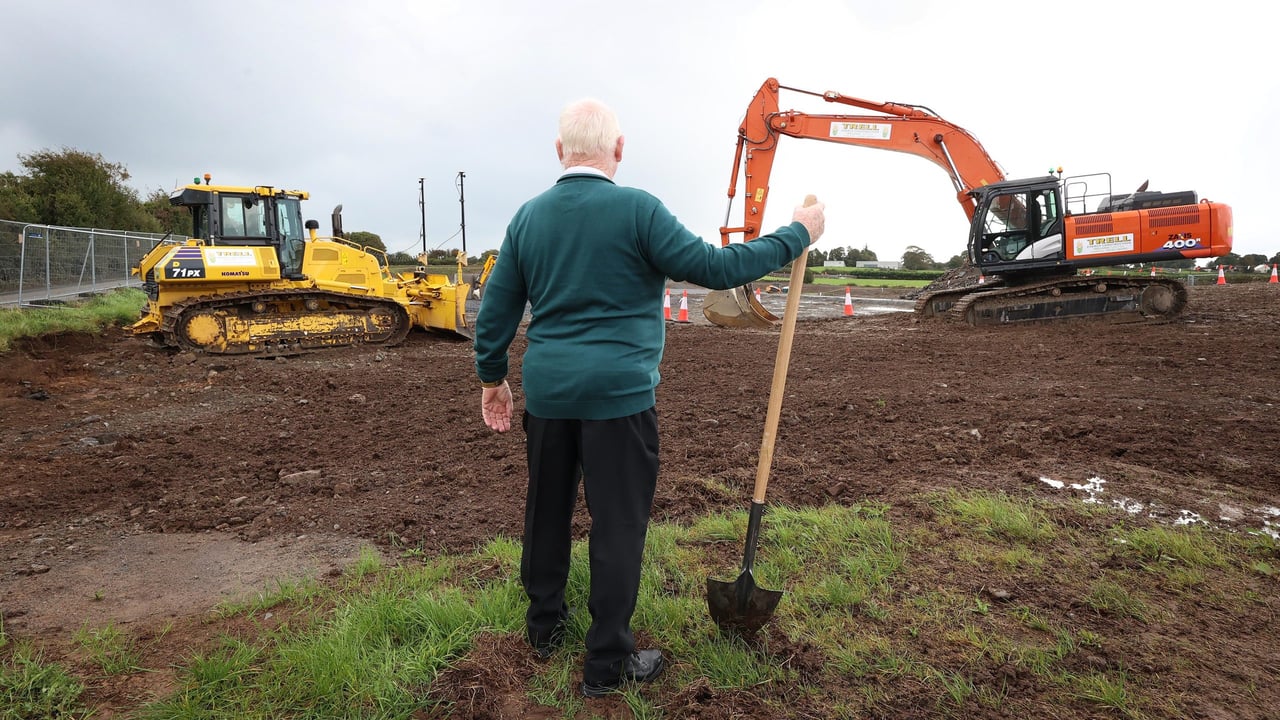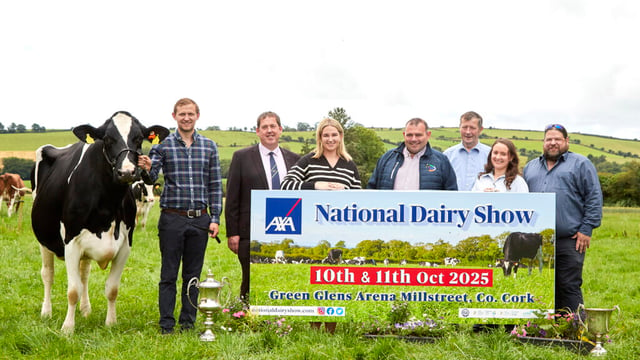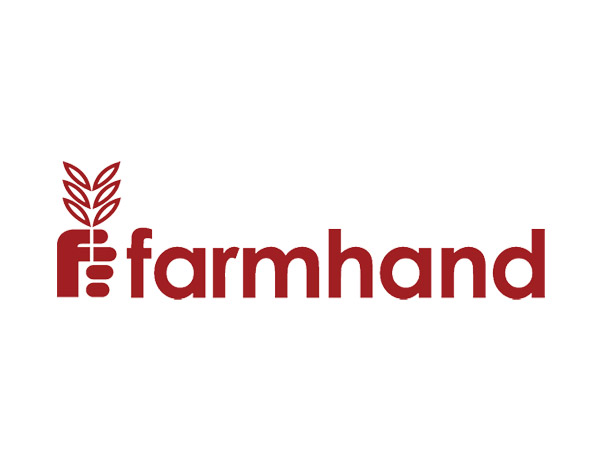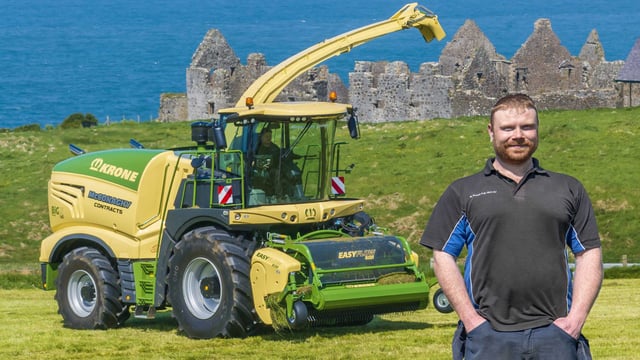Watch: Could biomethane be a long-term revenue stream for farmers?
Up to 99,000t of farm waste is set to be processed at a brand new biomethane facility in Co. Mayo from 2027 onwards.
Today, Thursday, September 11, the sod was turned on the project which is a partnership between Nephin Renewable Gas, Flogas Ireland and DCC plc.
Minister of State at the Department of Climate, Energy and Environment, Alan Dillon was among the guests at the event as well as Canadian Ambassador to Ireland Dennis King.
Ambassador King was invited as a special guest given that much of the investment for the project is backed by Canadian pension funds.
Also in attendance were local councillors, staff of all the stakeholders involved as well as John and Kitty Sheridan, the pig farm owners who provided 10ac of land for the plant.
Biomethane plant
This the first-of-its-kind partnership in this country and is expected to deliver over 250GWh of Irish-produced biomethane annually and is a €200 million euro investment into the local rural area over the lifetime of the project.
Once operational, the Ballinrobe plant will process 90,000t of farm waste annually – including manures and slurries – to generate over 85GWh of biomethane.
It is also expected to create over 100 direct and indirect jobs over its lifetime, while the stakeholders have also said that it will provide farmers with long-term, reliable income streams.
Green future?
Speaking at the sod turning today, group CEO of Nephin Energy, Tom O'Brien said: "We are planting the seeds of Ireland's green gas revolution, unlocking energy that comes from the ground itself.
"Very importantly, [it] will provide farmers with very reliable long-term income streams."
Meanwhile managing director of Nephin Renewable Energy, Graeme Lockhead told Agriland: "Our ambitions and the ambitions of all the AD developers in Ireland is to have a more cohesive and island based AD industry.
"[One] which is based in agriculture and the principles of agriculture - taking product from agriculture, such as waste and slurries and crop and putting that in to produce biomethane.
"Also the benefits coming from that is returning that product as a bio-based fertiliser, organic based fertiliser which has a carbon reduced footprint."
Nephin Renewable Gas has four more biomethane plants at the planning stage across the country which are based on 'anchor' farmers where there is normally a piggery associated with the development.
"Our plants are EPA [Environmental Protection Agency] licensed, so we partner with EPA-licensed piggeries, so there is a natural synergy there," Lockhead continued.
"However, we're always looking for sites, we're always looking for partners, we're always looking for potential.
"If we can do it in the west of Ireland where we have a predominance of grass and dairy, and we can make it a success here, it's a flagship for the rest of Ireland."
Last month, the biomethane industry got a boost with the announcement by Minister for the Climate, Energy and Environment, Darragh O'Brien that he had secured government support for the introduction of the Renewable Heat Obligation Scheme (RHO).
The government also gave its approval to begin drafting of the Renewable Heat Obligation Bill 2025.
The bill will provide a legislative basis for administration of the scheme next year - 2026.
Set to be in place until 2045, the RHO will obligate suppliers of fossil fuels used for heat to demonstrate a proportion of the energy they supply is from a renewable source.
Farmer input
Landowner and pig farmer, John Sheridan explained that he has wanted to do something more sustainable with his pig manure since as far back as the 'Celtic Tiger'.
"It really started back in the Celtic Tiger years, when I was putting out pig manure, and I realised with new houses being built around the countryside, that there was very few places you could actually go that you weren't offending people [with the smell].
"I thought something has to give here, so I started doing research on ways and means of keeping my piggery open without offending people.
"In fairness, all my neighbours have been very good to me down through the years; I've had no objectors and I'm very thankful for that," he said.
During his research, John Sheridan discovered that AD fitted his piggery system and could provide an outlet for his manure while avoiding having to spread it on land.
"It's the perfect fit and I do believe it's the start of something very big," he added.





